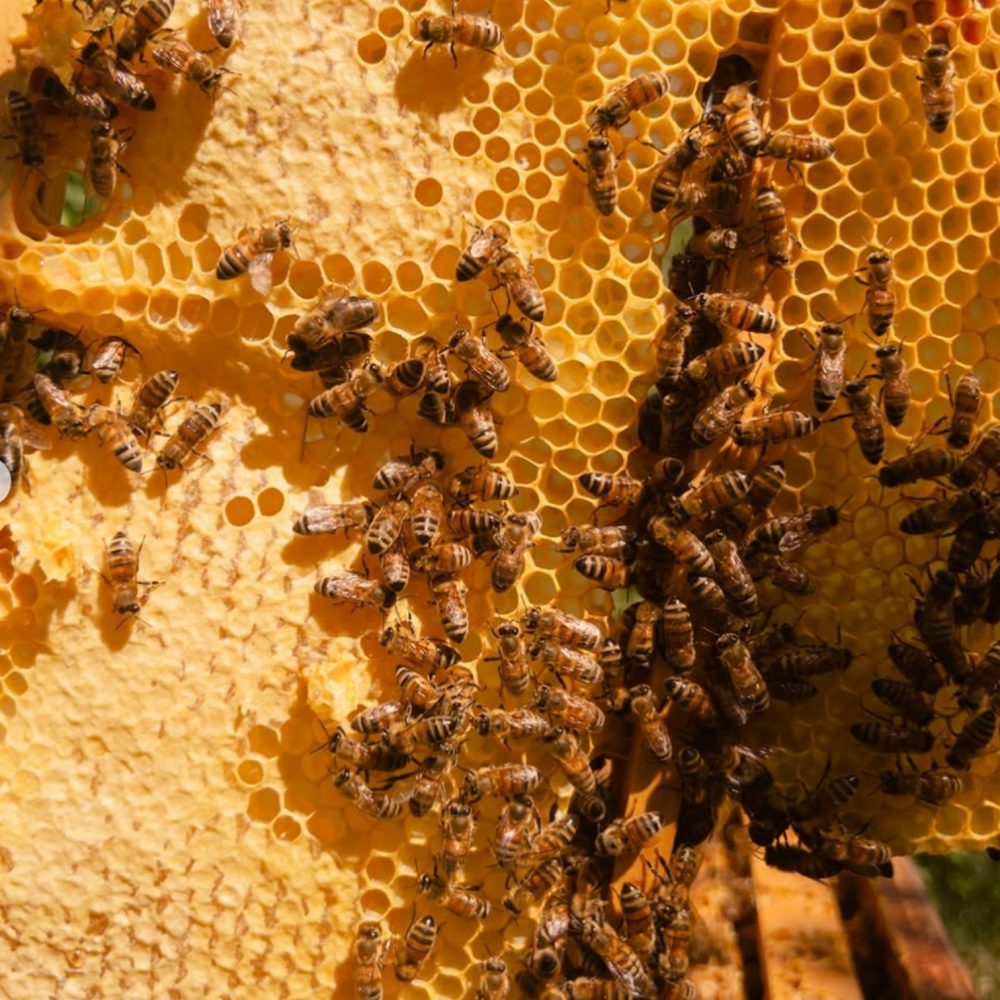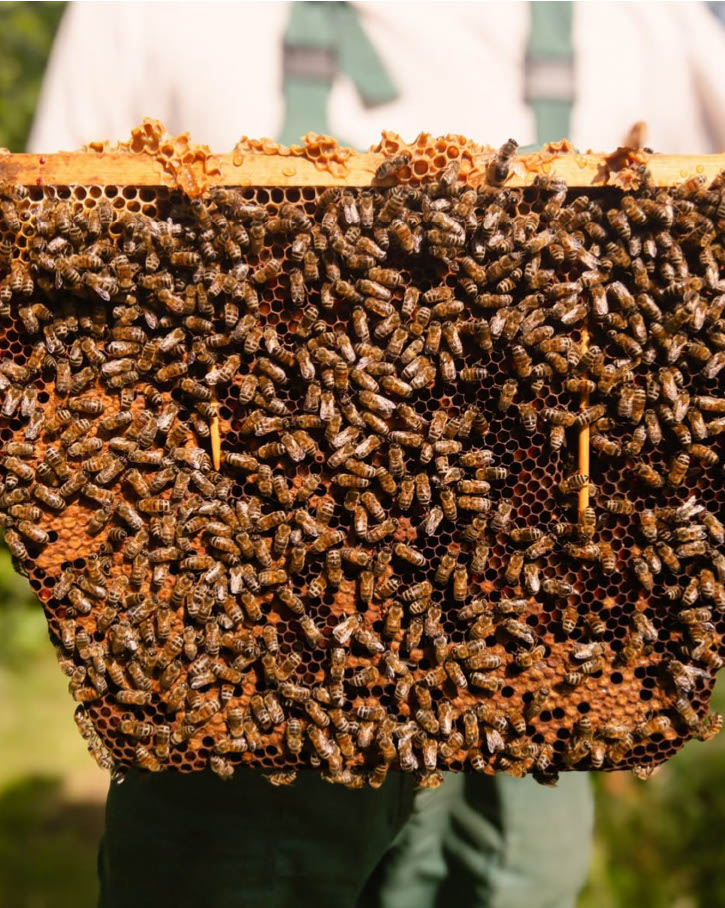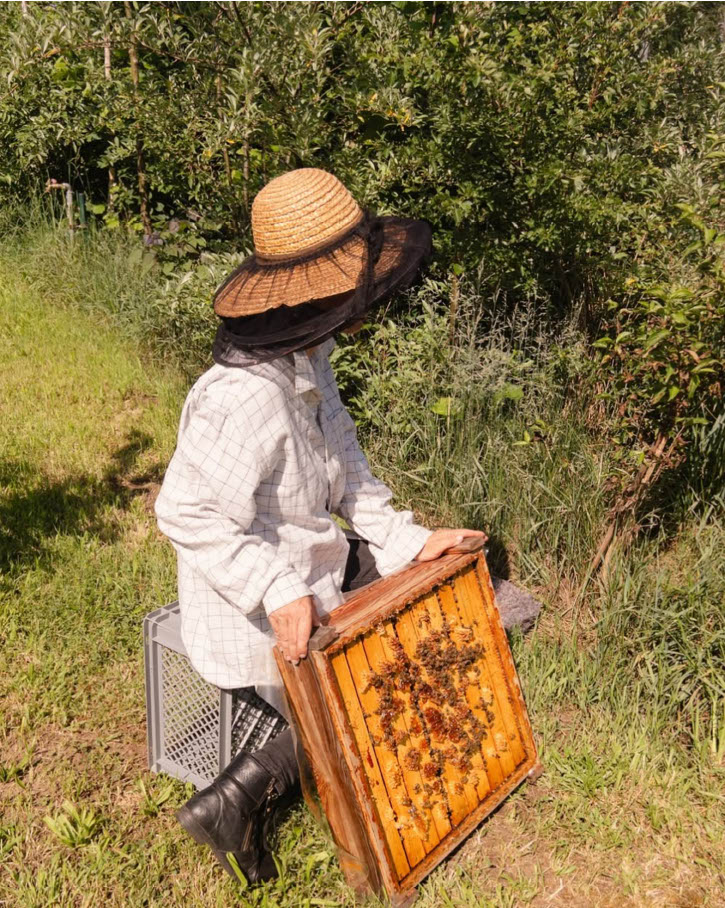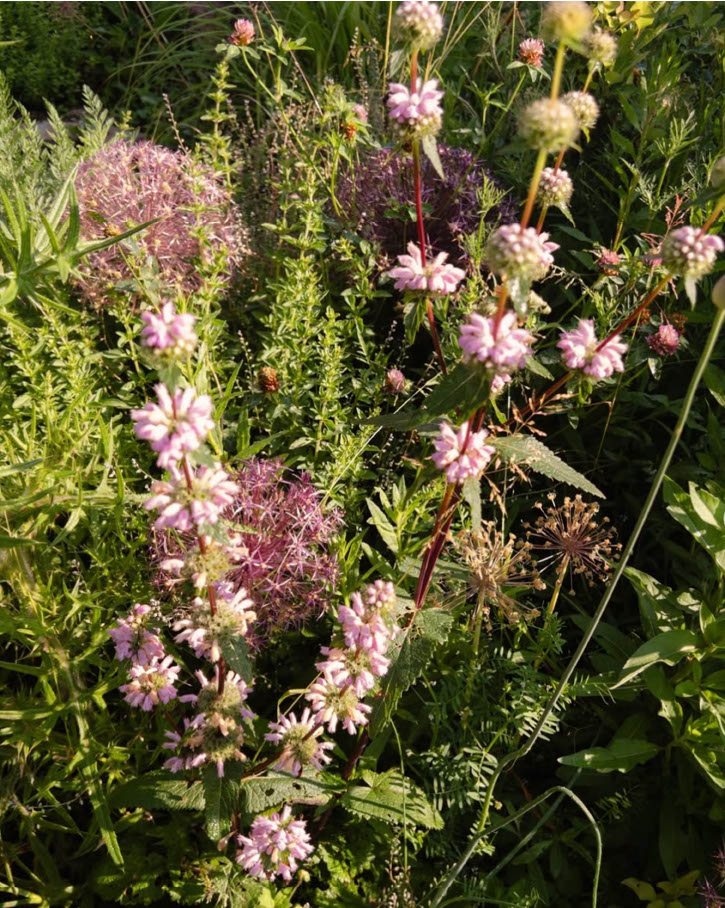What’s Happened
Our Bees – Manuka of the Spreewald
Wusstet ihr, dass wir mehrere Bienenvölker auf der Farm haben?
Unser Imker Micha und seine Frau Kathrin haben am Wochenende die Stöcke überprüft und uns dabei mitgenommen.
Michas Ansatz ist es, die Bienen so natürlich wie möglich zu Beimkern: Das heißt, ihnen wird genügend Honig zum eigenen Gebrauch gelassen, sie werden nicht gezwungen eine neue Königin in die Welt zu schicken und sie dürfen ihre Waben komplett selbst bauen. Dieses Jahr sind die Bienen jedoch durch den Frost, der die Robinien-Tracht hat ausfallen lassen, recht spät dran. Wenn sie dieses Jahr keinen Extra-Honig „abwerfen“, dann leben wir einfach damit. Hauptsache sie kommen gut über den Winter.
Wenn sie jedoch Honig abwerfen, dann den sogenannten Presshonig: Presshonig ist die Bezeichnung einer Honig-Gewinnung. Hier gibt es verschiedene: Schleuderhonig, Presshonig, Wabenhonig usw. Im Presshonig dürfen bestimmte Anteile aus der Wabe bleiben, wie z.B. Pollen, Propolis, Perga, Wachs und diese sind dann in Form kleiner dunkler Partikel sichtbar. Um die Herstellung kurz zu beschreiben: Wir geben die komplette Honigwabe in den Mixer und vermixen alles. Dieser Mix kommt dann in ein Behältnis und nach einiger Zeit setzt sich der Wachs wie ein Deckel über dem Honig ab, so kann dieser weiter „ziehen“ und den hervorragenden Geschmack entwickeln und reifen. Dadurch, dass wir alles von der Wabe verwenden, entsteht ein sämig-rauer Geschmack.
– Er ist 100% natürlich – ohne Zusatzstoffe
– Antioxidantisch
– mit Pollen & Propolis
– Gesundheitsfördernd
– Für uns auf Farm ist das der „Manuka“ des Spreewaldes
Somit fördert der Erhalt der Bienen nicht nur die Biodiversität, sondern auch unsere Gesundheit. Wir hoffen sie kommen gut über den Winter, trotz des Ausfalls einiger Trachten.
Did you know that we have several bee colonies on the farm?
Our beekeeper, Micha and his wife, Kathrin checked the hives at the weekend and took us along with them. Micha’s approach is to breed the bees as naturally as possible: This means that they are left with enough honey for their own use, they are not forced to send a new queen into the world and they are allowed to build their own honeycombs. This year, however, the bees are quite late due to the frost, which has caused the black locust plants to fail. If they don’t “drop” extra honey this year, we’ll just live with it. The main thing is that they get through the winter well.
However, when they drop honey, it is called pressed honey: pressed honey is the name of honey production. There are different types: centrifuged honey, pressed honey, honeycomb honey, etc. Certain parts of the honeycomb may remain in the pressed honey, such as pollen, propolis, perga, wax and these are then visible in the form of small, dark particles. To briefly describe the production: We put the entire honeycomb in the blender and mix everything. This mix is then placed in a container and after a while the wax settles like a lid over the honey, so that it can continue to “infuse” and develop and mature the excellent taste. The fact that we use everything from the honeycomb creates a creamy, rough taste.
– It is 100% natural without additives
– Antioxidant
– with pollen & propolis
– Health promoting
– For us on the farm this is the “Manuka” of the Spreewald
Preserving bees not only promotes biodiversity, but also our health. We hope they get through the winter well, despite the cancellation of some traditional costumes.




